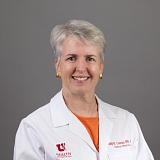
UP3RK
About
The University of Utah Program to Provide Pain Research Knowledge (UP3RK) welcomes applications for post-doctoral training to prepare the next generation of interdisciplinary pain researchers. UP3RK is currently accepting applications on rolling basis.
UP3RK’s mission is to impart the science knowledge, skills, and core competencies needed by post-graduate, interdisciplinary Scholars to address the nation’s scientific needs in clinical pain research.
Program Scholars are paired with senior mentors to guide Scholars through their individual training plans.
.png)
Our Mission
To impart the science knowledge, skills, and core competencies needed by post-graduate, interdisciplinary Scholars to address the nation’s scientific needs in clinical pain research.
UP3RK Objectives
Objective 1: Recruit and support a diverse and interdisciplinary group of clinical pain research Scholars with particular emphasis to attract scholars underrepresented in medicine and clinical research, and those with diverse career paths and clinical backgrounds.
Objective 2: Provide a state-of-the-art training environment and curriculum to develop the next generation of clinical pain researchers with emphasis on the UP3RK focus areas; nonpharmacological pain treatments; effective interventions for pain and co-morbidities, particularly SUDs; implementation science; and research within vulnerable, diverse, and underserved populations.
Objective 3: Provide Scholars with opportunities to improve the impact of their clinical pain research careers and achieve independent research support within 5 years of completing the UP3RK program by developing career development and programmatic skills (e.g., technical, operational, professionalism, communication skills) and interdisciplinary research skills (e.g., working with an interdisciplinary research team).
Training
UP3RK is situated at the University of Utah (UU), a rich environment to train interdisciplinary Scholars on clinical pain research in diverse settings. UP3RK training focuses on our institutional strengths of:
- Nonpharmacologic pain treatment
- Effective interventions for pain and co-morbidities, particularly substance use disorders
- Implementation science
- Research with diverse and underserved populations
Annually, UP3RK supports five Scholars—within a two-year training duration—through dedicated UP3RK Mentors within an innovative, multi-level mentor model (Mentor Matrix Model) that has proven extremely successful in developing independently-funded investigators who remain in academic research careers.
The UP3RK trains our Scholars in:
- In our four focus areas
- Career development and programmatic skills
- Interdisciplinary research skills.
UP3RK’s emphasis on communication, grant writing, and team science at all levels equip our Scholars with key knowledge, skills, and abilities to advance innovations to improve health for persons with chronic pain and enable a transdisciplinary approach to team science. To accomplish our mission, we leverage new and existing local training curricula and national trainings available from the HEAL PAIN Cohort Program. We evaluate UP3RK training activities through a dedicated evaluation process. The research environment and novel training opportunities available through the UP3RK will facilitate achieving these objectives and ensure the program develops Scholars with the characteristics of successful, independent clinical pain researchers.
Our Team
Principal Investigators


Our mentors







UP3RK Evaluation Domains

UP3RK Logic Model

Please contact kat.purifoy@hsc.utah.edu with inquires.